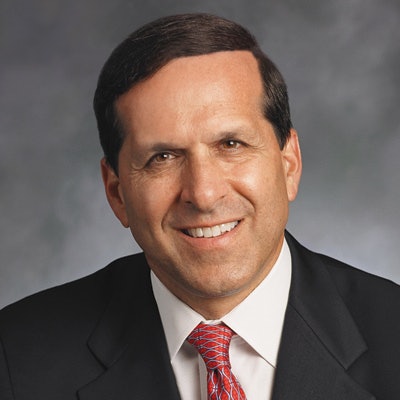
One of the benefits of being the CEO of a practice management consulting firm is that you are constantly exposed to real-life practice situations. In the last few months, we have had several calls from dentists who wanted advice on how to address a significant negative event in their practice. These events included a malpractice lawsuit, a patient who wanted a refund, and a team member who had embezzled money.
Negative events can feel overwhelming, crushing, and maybe even severely threatening to our future. But in my 38 years of experience, I have seen many negative practice occurrences, and, believe it or not, most of them do very little damage. We have seen very few practices that were not fully covered by their insurance company for a malpractice lawsuit or embezzlement. Furthermore, we have also seen many examples of patients wanting refunds, which is merely a negotiation and usually works out with minor financial impact. However, these events can have an emotional impact.
A lawsuit has the emotional impact of someone saying you did not do a good job. This is also the case with a patient who wants a refund. With embezzlement, there is a breakdown of trust with a team member whom you may have supported and greatly cared about. All of these responses are emotional and not financial. Emotions can be dealt with, and while the financial impact could have long-term negative effects, the truth is, it rarely does.
The biggest losses involve what you don't do
 Dr. Roger P. Levin.
Dr. Roger P. Levin.We focus on negative events at the beginning of this article because every dentist can relate to how bad it would feel to have them happen. But the truth is that these events have a minor impact on the practice from a business or financial standpoint. Eventually, the emotional impact will dissipate as well.
So, if these negative events that we focus on so heavily, when they occur only have a minor impact, what has a major impact on a practice? Here is a statement you should read several times:
You will lose millions of dollars of revenue in your practice by what you don't do.
This is the area where you should focus your emotions and financial acumen. You probably won't be devastated financially from the malpractice suit, refund request, or embezzlement. However, you will lose millions of dollars in revenue by the things you don't do.
Levin Group research now indicates that most practices will lose as much as $6 million over a 40-year career of potential revenue that could have easily been generated if certain specific actions are taken. This is not a loose or generalized commentary but a mathematical reality that we've come to after analyzing thousands of practices over the years.
How to not lose millions
So, rather than worry about a negative event, what are some of those things that you don't do but could do? We recommend that you consider the following strategies.
1. Replace your systems every five years.
Too many practices focus on improving their systems long after they need to be replaced. Improving or tweaking systems is not the same as replacing them. Every five years, top practices tend to go through the exercise of replacing some or all of their systems.
For example, the correct scheduling system can increase practice growth significantly. Every five years, you must mathematically reconstruct a schedule that will allow you to hit your goals. The same is true for systems like case presentation, financial management, financial options, hygiene productivity, and so on. There are 12 major systems, and they should be replaced every five years.
2. Don't just train your team; train them at the highest level.
Every day, obsolescence sets into your team. This is normal in business. Over five years, for example, your team may become pretty obsolete. They can still file insurance claims and answer the phone, but do they know the most current and best methods of accomplishing these tasks?
In filing insurance claims, we constantly find practices using the wrong codes and being underpaid. When it comes to answering the phone, we've found that as many as 30% of new patients in some practices don't make appointments.
Teams that are trained at the highest level won't make these mistakes. Another reason to train your team at the highest level is delegation. You can't delegate to people who can't do the job.
3. Build a bigger patient base.
Have you ever wondered why customer service is always such a hot topic? In many seminars, I've pointed out that it may be the single most talked-about business subject and the least implemented. It is like purchasing a new exercise bike that eventually becomes the new clothing hanger. It sounds good to talk about how much exercise you'll get, and you may even do it for a little while, but eventually, it just gets put in the corner.
This is what happens with customer service in most businesses and practices. Every team member or employee in the business world would immediately state that customer service is essential and should be part of every customer experience, but in reality, this rarely happens.
As a motivator for increasing customer service, I urge practices to consider that the reason for building excellent customer service is to build a bigger patient base, which will lead to higher production and revenue. Excellent customer service creates highly satisfied patients. Highly satisfied patients stay with the practice and refer other people, which will increase your patient base. Bigger patient bases, as we found in our 30-year ongoing study of the top 10% producing practices, always lead to higher production.
Summary
While negative events can be emotionally devastating, they have little financial impact over the course of your dental career. We advise that practices quickly address negative events and focus the bulk of their attention on the three key recommendations in this article to help increase practice production and build revenue.
Dr. Roger P. Levin is CEO of Levin Group, a leading practice management and marketing consulting firm. To contact him or to join the 40,000 dental professionals who receive his Practice Production Tip of the Day, visit LevinGroup.com or email [email protected].
The comments and observations expressed herein do not necessarily reflect the opinions of DrBicuspid.com, nor should they be construed as an endorsement or admonishment of any particular idea, vendor, or organization.



















